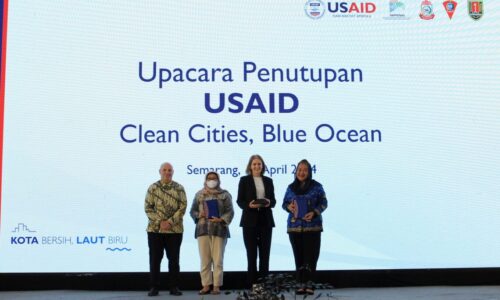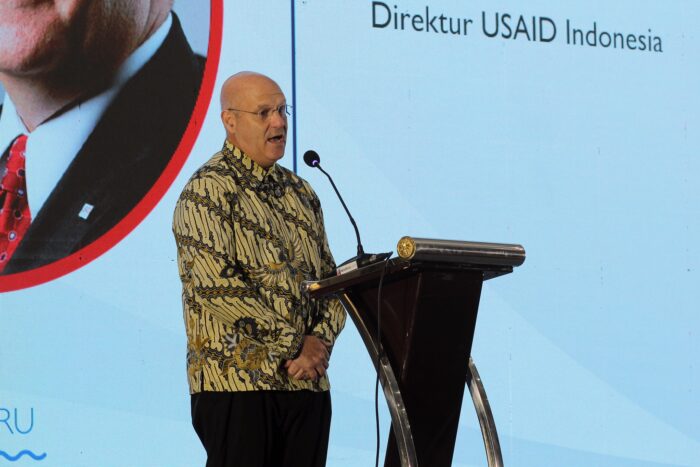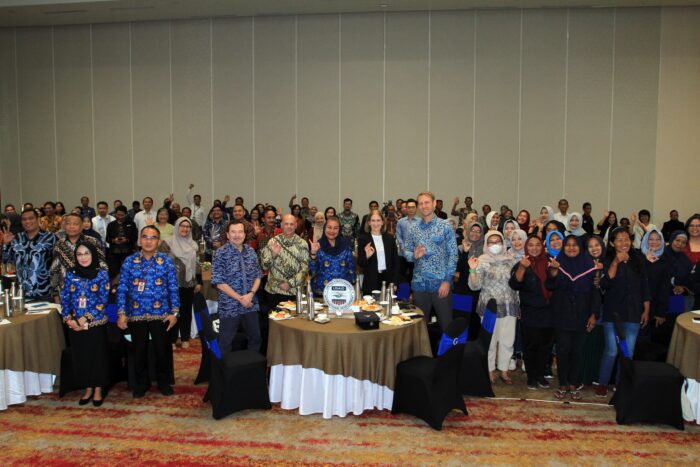United States and Indonesia Celebrate “Clean Cities, Blue Ocean” Collaboration to Reduce Plastic Pollution

Cross posted from the U.S. Embassy and Consulates in Indonesia
SEMARANG – The United States Agency for International Development (USAID) successfully completed its Clean Cities, Blue Ocean (USAID CCBO) program in Indonesia, implemented in close partnership with national and local governments. USAID CCBO is the agency’s global flagship program under the Save our Seas Initiative to address ocean plastic pollution in rapidly urbanizing areas. Since the program was launched in Indonesia in June 2021, USAID and partners have safely managed more than 17,900 metric tons of municipal waste, preventing over 7,680 metric tons of plastic (the equivalent of over half a billion plastic bottles) from leaking into the environment.
In opening remarks at the USAID CCBO Closing Ceremony on April 17, USAID Mission Director Jeff Cohen noted that this year marks the 75th anniversary of relations between the United States and Indonesia as he celebrated the remarkable results of this bilateral partnership. “The collaboration between the United States, through USAID, with the Government of Indonesia and the cities of Semarang, Makassar, and Ambon to strengthen waste management is making Indonesian cities more livable, reducing plastic pollution in Indonesia’s seas, and helping safeguard Indonesia’s natural beauty for future generations,” said Cohen.

USAID engaged with local partners and global experts to implement and test locally relevant and sustainable approaches for reducing ocean plastics in the cities of Semarang, Makassar, and Ambon. These approaches can be shared, scaled, and tailored to meet the needs of communities, the public and private sector, and waste value chains around the world. As a result of the program’s support to and partnerships with local governments, organizations, and businesses, nearly 3.6 million people are now benefiting from improved waste management services and programs. More than $3.7 million in public and private investment to advance local waste management systems amplified the program’s impact. USAID also supported the proposal of eight public policies related to solid waste management and provided technical assistance to build the capacity of 124 entities.
“The Government of Indonesia expresses its gratitude to USAID for its vital support in enhancing our waste management systems as we progress towards our 2025 objective of reducing plastic and other marine waste by 70 percent,” said Nur Aisyah Nasution, the National Coordinator of Drinking Water and Sanitation of the Ministry of National Development Planning/Bappenas. “We look forward to scaling the program approaches we tested at a national level, empowering more women working in the waste sector, integrating social and behavior change in the community based total sanitation (STBM Pilar 4), and implementing at the city level the waste management plans we developed.”
USAID also awarded more than $3 million in grants to locally-led organizations to pilot solutions to stop the flow of plastics into the ocean. These organizations include Yayasan Kesejahteraan Keluarga Soegijapranata (YKKS), Bina Karta Lestari, Million Limbah Ambon, Prevented Ocean Plastic Indonesia, Rebricks, Waste4Change with Yayasan Lestari Mulia and Green Moluccas, and SystemIQ. With USAID’s support, they built the capacity of communities to manage solid waste aggregation sites, enhanced end markets, improved recycling infrastructure in communities, enhanced local government participation, and empowered women in the waste sector.
For more information, visit http://www.usaid.gov/indonesia or contact USAID Outreach and Communications Lead Swiny Andina at +62 (21) 5083-1000 or sandina@usaid.gov.


